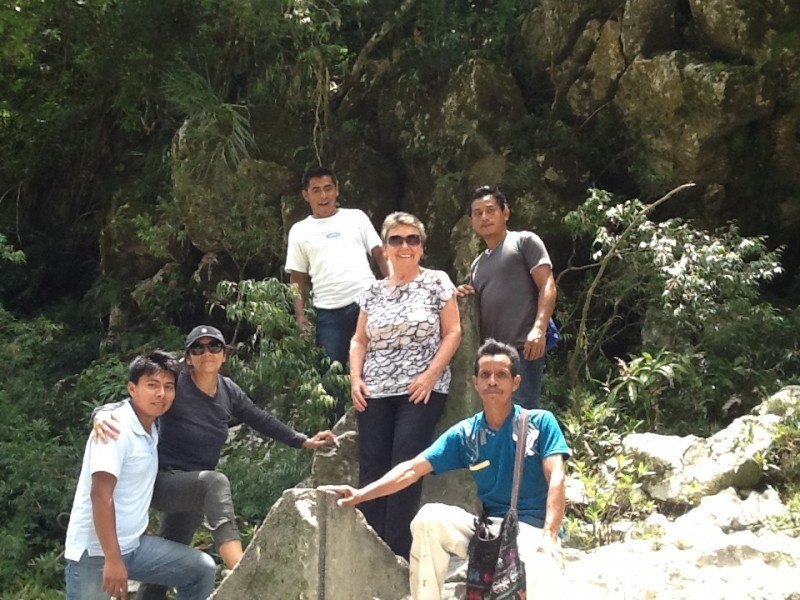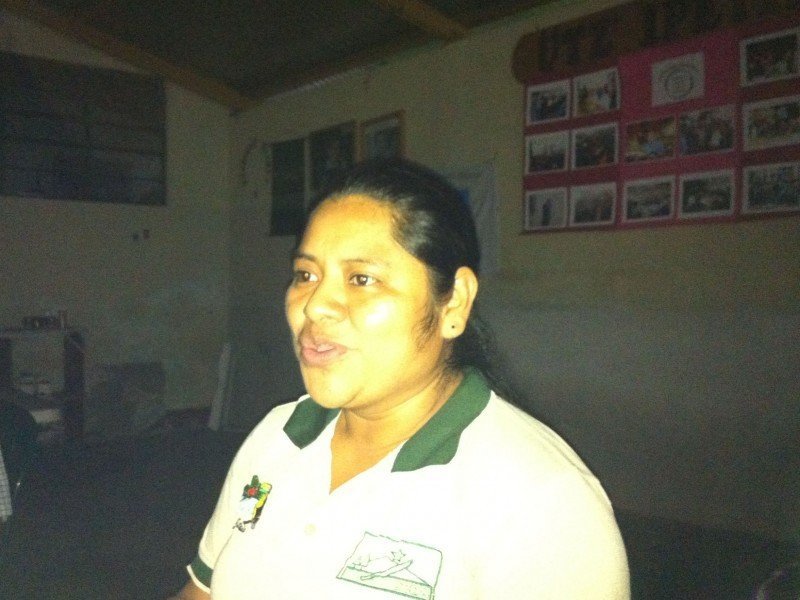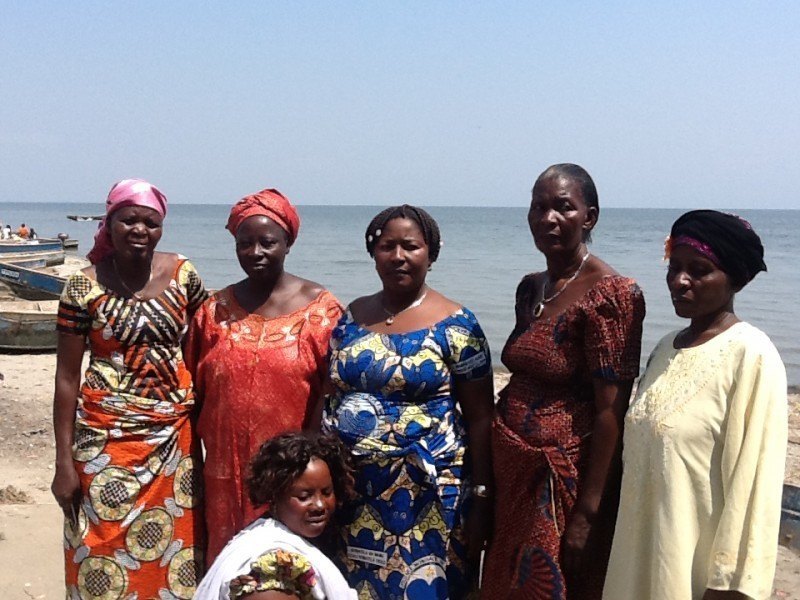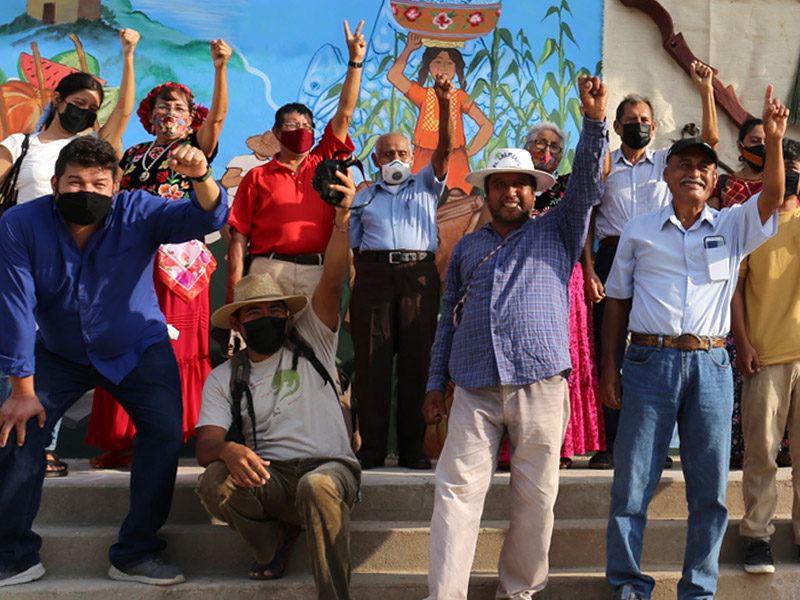Late last year, I flew from my home in Uganda to Scotland to attend the Conference of Parties (COP26), an annual United Nations meeting in which countries around the world discuss ways to slow the onset of global climate change. I attended with support from AJWS, and I was one of the few women, one of few activists for rural women farmers and one of even fewer African women to attend. I found it outrageous that I and other activists like me spoke at press conferences and side events but were not in the room when negotiations were taking place.
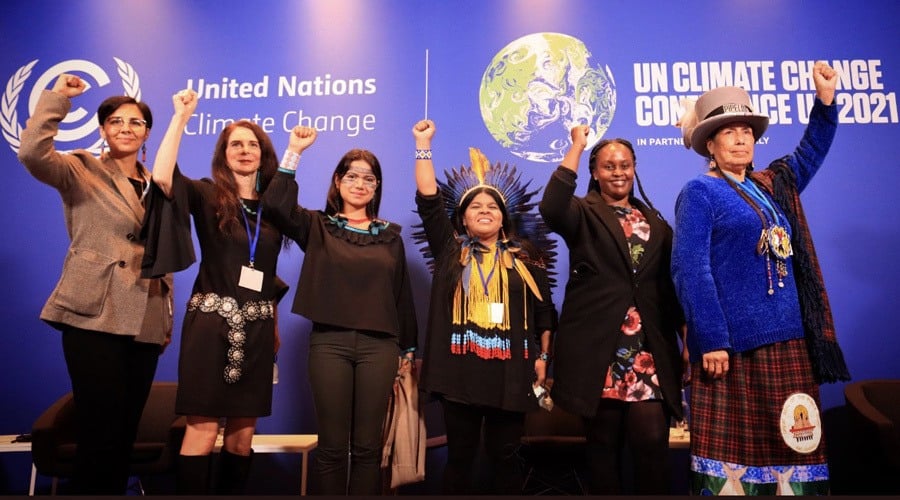
Through my work in Uganda with the National Association of Professional Environmentalists (NAPE), a national environmental organization supported by AJWS, I have witnessed the impacts of climate change firsthand. I’ve seen flooding caused by climate change that has displaced over 100,000 people. I’ve seen large-scale sugar plantations, oil pipelines and other climate-changing developments destroy farmlands and ecosystems and displace local communities. The examples are too abundant to count.
The rural women farmers and other community members I work with know how to farm sustainably and manage forests to keep them healthy so they can absorb the emissions that are causing climate change. The rural people in my community know that they are the least responsible for climate change but bear the brunt of its impacts. They know that we must transition away from dirty fossil fuels and toward a renewable energy future, and that those countries emitting the most must change course and support those who are most impacted by their decades of high emissions. We know that climate policy must be informed by the needs of the majority of people on Earth and not private-sector profits.
Sadly, at COP26 these truths about climate justice were not acknowledged, and common-sense solutions were frustratingly absent. Here is how COP26 fell completely short, and what we can do—in the narrowing window of time we have —to support the leadership of those closest to the climate crisis in the Global South and ensure global climate justice in the future.
We cannot eat oil, and sugar will not feed our children
Fossil fuel executives were at the negotiating table at COP26, but not the small-scale farmers and other communities directly impacted by climate change. So it’s no surprise that a basic truth went unacknowledged: we cannot eat oil, and sugar alone will not feed our children.
If there is anything that the COVID-19 pandemic has taught us in Uganda, as well as many other places in the Global South, it is that rural women farmers are the ones who feed us during good times and crises alike. When airports and supermarkets shut down and started running out of food, it was rural women farmers who kept communities fed, and in a way that is environmentally sustainable. When their land is taken from them by oil companies or mega industrial farms aiming to grow commodities like sugar cane or palm oil, an important community food source is taken away and our climate is threatened—as food must be trucked, shipped or flown long distances to communities that used to feed themselves from their own backyards.
Across Uganda, subsistence farmers — who make up about 80% of the national population — are being evicted by armed Ugandan forces to make way for foreign mining companies, oil drilling, plantations and resorts. Biodiverse forests and national parks are being sold to the highest bidder. The tropics, where trees grow fastest due to the regularity of sunlight, is our planet’s hope, yet, according to Uhuru Institute for Social Development in Kampala, Uganda only has 10% forest cover now.
Forests are the lungs of the Earth, as they absorb the carbon dioxide that is warming our climate—a natural feat that monoculture agriculture is incapable of performing. Cutting pristine indigenous forests and replacing them with palm oil plantations is driven by capitalism, and is part of the shortsighted, profit-driven development that got us into the climate crisis in the first place. We must wake up to this reality and change course quickly.
We must do more to limit the planet’s warming
Our planet has already warmed substantially, and people around the world are suffering from flooding, extreme weather and drought leading to crop loss and more. For the communities I work with in Uganda—marginalized, evicted from their lands, watching as companies degrade the fragile ecosystems they depend on—the agreements made by global leaders are dangerously insufficient to keep our communities safe.
Most importantly, the Glasgow Climate Pact, the global agreement reached at COP26, fails to get the world on track for keeping global temperature rise below 1.5 degrees, the level of warming above which scientists generally agree will contribute to even more devastating catastrophic impacts on our planet. Measures like carbon trading and “net zero” targets are not real solutions for mitigating the climate crisis—they simply create a massive escape hatch for countries and companies in the Global North to keep emitting carbon as long as they “offset” it. The offsetting activities often involve acquiring large tracts of land in the Global South—sometimes through displacing the communities who reside there—and converting them into “forest” plantations that may later be used for timber.
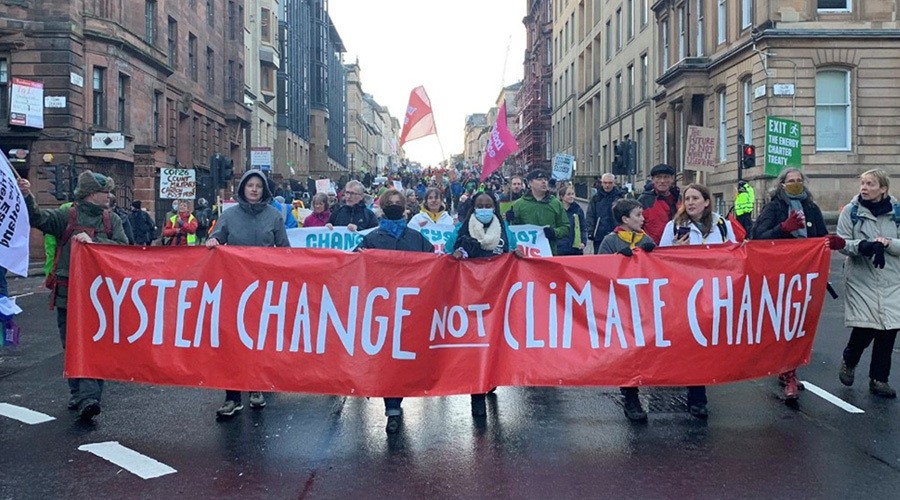
Perhaps most outrageously, the Glasgow Climate Pact still allows continued fossil fuel use, only calling for phasing down of unlimited coal burning. It also leaves open the possibility of coal usage with carbon capture and storage, which is still an unproven technology and could harm ecosystems. It also allows for governments to continue to provide fossil fuel subsidies to oil and coal companies, only calling for phasing down of “inefficient” subsidies. We must end all subsidies for dirty energy, prioritizing renewable sources instead.
Solutions must right historical wrongs
The agreements coming out of COP26 let Global North countries off the hook for reducing their emissions and do not provide financing for Global South countries to develop their economies with renewable energy rather than fossil fuels. The Glasgow Pact calls for global emissions cuts without recognizing that countries in the Global North—which have done exponentially more to cause climate change by emitting the lion’s share of global greenhouse gas emissions—have the wealth and the responsibility to cut their own emissions. Instead, the Global North continues to perpetuate climate colonialism, emitting climate-changing greenhouse gases like there is no tomorrow, while expecting people of color to bear much of the burden of reducing global emissions—even as many lack access to electricity in their homes. This is not climate justice.
Rich countries—those responsible for skyrocketing greenhouse gas emissions—also failed to commit to climate reparations, including financing for clean energy and adaptation to climate impacts that are sorely needed in the Global South. This is a betrayal of the millions of people suffering the most from the climate crisis. Funding for solar power that is controlled by rural communities; water management systems like community-based rainwater harvesting systems to help deal with climate-induced drought; storage facilities for seeds and sustainably grown produce; and community-led forest management are all effective solutions that deserve to be funded in the communities where I work, and across the Global South. In the United States, the US Climate Action Network has charted a pathway for what the US fair share climate commitment would be.
Here is how we can achieve climate justice
Despite witnessing the disappointing failure of COP26 firsthand, I remain hopeful that we can slow the worsening of the climate crisis and begin to achieve climate justice for those around the world who most suffer its impacts. When demanding action for climate justice, let’s call upon our leaders to:
- Phase out fossil fuel extraction, production and use and end all fossil fuel subsidies
- Create binding agreements to stop deforestation and industrial farming on indigenous lands and existing forests
- Fund real climate justice solutions, such as sustainable farming and agroecology, legal recognition of community land rights, community-controlled renewable energy sources and the indigenous management of forests
- Ensure that next time there’s a climate summit, the right people—Indigenous people, rural farmers and women, who have deep knowledge of the land—are at the table, rather than fossil fuel executives.
We can only build a future with climate justice for all by working together to make it possible.
Sostine Namanya is the Gender and Food Security Officer at the National Association of Professional Environmentalists (NAPE).

